Posted on 12/30/2022
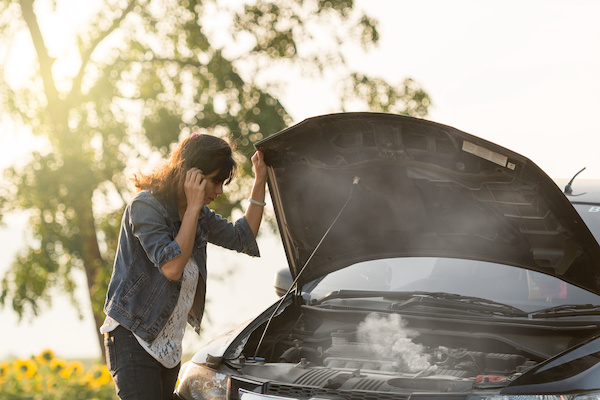
When your engine overheats, you probably only have a few minutes to prevent extreme damage to your engine. There are various reasons your engine might be overheating, but it is important to be prepared to avoid repairs running into the thousands. Here are a few things you can do when your engine overheats that can make the difference between a minor inconvenience and an expensive visit to the auto shop. 1. Turn Off the Air Conditioner Turning off the air conditioner will take a load off the engine, reducing stress caused by the cooling system. If possible, crank up the heat in the car to divert heat away from the engine. This tip will work best if the air outside is cold. 2. Pull Over and Turn Off the Engine Find a safe spot to pull over and shut off the engine. Allow the engine to cool off for at least 15 minutes, during which you should keep an eye on the gauge if your car has one. 3. Add Radiator Fluid If you have radiator fluid, top off the contents to protect your engine fr ... read more
Posted on 11/30/2022

Real Christmas tree has many benefits as they are disposable, smells great, and are usually sold locally. They also offer many families a fun way to bond. The only tough part about a real tree is having to bring it home. Typically, transport is easier if you have a bigger vehicle, such as SUV or truck. If you are planning to pick up your tree soon, we hope these tips find you well and make bringing the tree home a little easier: Come with the Right Tools – You're going to need strong rope to tie the tree down if you don't have a truck. Additionally, you'll need an old blanket or tarp to lay down. And lastly, you're going to need gloves for protection against the pointy parts of the tree. Wrap the Tree – Once you have chosen the tree you want at the farm, you will need to have the tree netted. This process is usually done by the tree farm. However, you should lay down a blanket or tarp to wrap the tree a second time. This ensures your c ... read more
Posted on 10/31/2022

Car noises can be both annoying and scary. Sometimes, the noise might emanate from specific parts, say the wheels or the engine. Other times, you can barely make us the source of the sounds. Whichever the case, most vehicle noises are indications that something is wrong. This could be a minor problem or a major problem impacting your vehicle's functionality. Either way, you should never ignore these noises. Your next action can make all the difference between simple maintenance and repairs and costly repairs and replacements. Here are some vehicle noises that indicate a problem: Screeching Noises Emanating from the Hood A squealing noise from under the hood might indicate a damaged serpentine belt. Generally, the best plays a crucial role in driving various external components, including the power steering pump, alternator, and water pump. In such a case, you should visit your technician for immediate replacement. A Rattling Sound When Driving at Low Speed Sometimes, you might ... read more
Posted on 9/30/2022
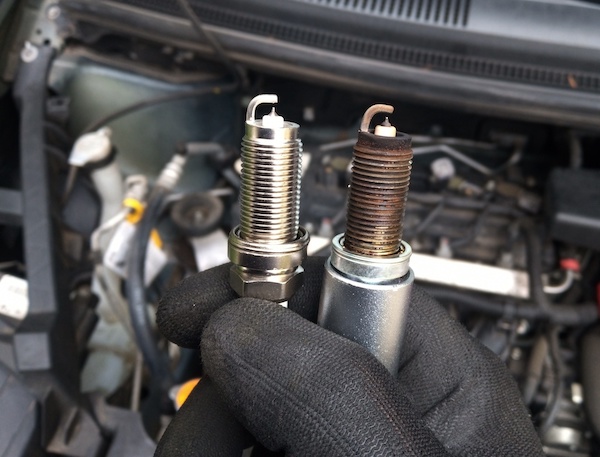
Engine misfire or engine knocking is a condition where the engine fails to ignite all the fuel in one or more cylinders, leading to a loss of power and efficiency. It can occur for many reasons and affect internal combustion engines, including gasoline and diesel engines. What Is Engine Misfire? An engine misfire is a problem that occurs when the engine does not fire at the right time. Things that can cause misfiring include: A faulty spark plug. A loose or broken wire leads to the spark plugs. A missing fuel injector (a component that mixes fuel and air before it enters an engine). An internal fault with your car's ECU (electronic control unit) or wiring system. If you're experiencing engine misfire, you'll notice your car losing power and becoming harder to start. Causes of Engine Misfire There are many causes for engine misfires. You can categorize them into three: mechanical, electrical, and fuel-related. Mechanical causes include problems with the engine itsel ... read more
Posted on 8/29/2022
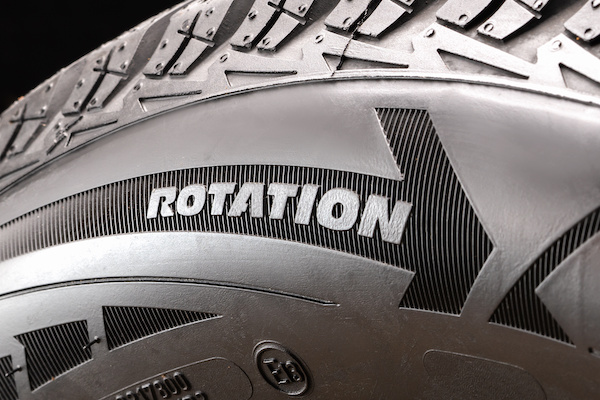
Tire rotations are a crucial step in maintaining the tires on your vehicle. Rotating your tires is not only important for your safety, but extends the longevity of your tires. Plus it could be required to keep your car’s warranty, so it's time to get rotating! A tire rotation service simply means switching the location or position of each tire. Typically, it is done every 5,000 miles or at every oil change. They are relatively inexpensive, but you still might wonder, “what is the purpose of tire rotations”. Tire rotations are necessary to promote even tire wear across all the tires on your vehicle, extending the life of the tires. In other words, it will maximize their tread life. On most vehicles, the front tires tend to wear quicker in the front than in the rear. Therefore, changing the tires’ positioning ensures they are always even. Even tires can make turning, braking and accelerating in your vehicle easier and safer. By ... read more
Posted on 7/26/2022
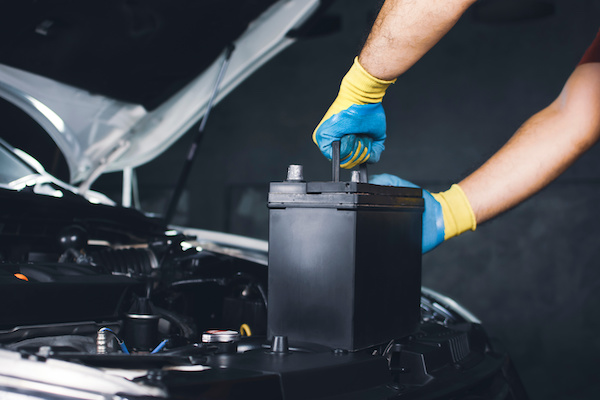
The battery is the lifeline of your vehicle. It is responsible for powering all the electrical components in your car and starting your engine. It can be very exasperating when you are in a hurry, start your vehicle, and it doesn't start. After you check under the hood, everything is in order apart from the battery. Best Time To Replace Your Car Battery It is best to replace your car battery before you need to. You should replace your car battery at least after every four years. However, some factors determine the lifespan of your car battery. Some of these factors are; Climate- if you are in hotter climates, you may need to replace your car battery sooner than in four years. The heat increases the degradation rate of your car battery. In cooler climates, batteries can last up to five years or more. Heat - The heat in the hood will also increase the rate of battery degradation; however, some auto manufacturers avoid this by installing a shield around the battery or putting the ... read more
Posted on 6/29/2022
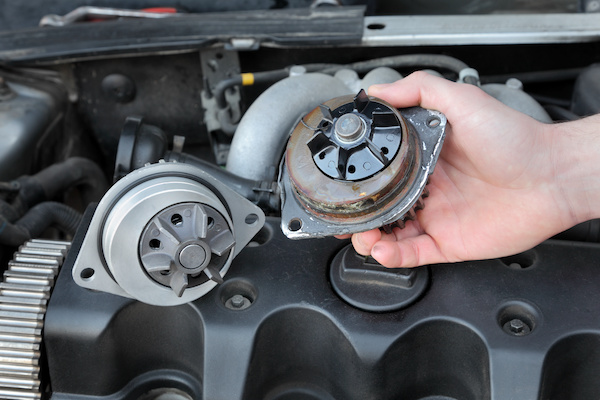
When you find coolant/antifreeze under your car, it can be quite concerning. Since your cooling system comprises various parts, it can be hard to pinpoint on your own. Leaking coolant can be a symptom of a failing water pump. Water pumps play a vital role in circulating coolant fluid from the radiator to the engine. Nowadays, they have a pulley system that relies on a series of belts, hoses, and bearings to move the fluid. However, some water pumps can get their energy from the electrical system. Over time, the water pump can malfunction. Read on to learn more about the signs of a failing water pump: Smoking and overheating - If you see smoke emanating from your vehicle, it is likely that it is a fault in the cooling system. You can tell when your car is overheating by referencing the temperature gauge located on your dash. Weird sounds - The engine can make unusual sounds when something is wrong. It can make knocking sounds when you have bad bearings around the engine. Keep ... read more
Posted on 5/26/2022
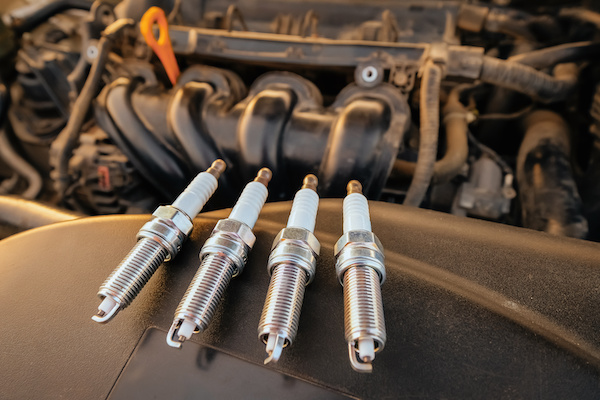
Spark plugs play a vital role in your car's combustion engine. Faulty spark plugs will result in poor combustion and eventually faster drains gas from your tank. When spark plugs malfunction, you might not ignite your vehicle because they'll fail to generate the necessary spark that helps move the engine's piston. Therefore, you must change them frequently to avoid such annoying malfunctions. Changing your spark plug will be determined by a lot of factors. If you feel that your ignition is not instantaneous as expected, you need to replace them. The interval of change of spark plugs varies depending on the specific vehicles. Checking the vehicle's manual will help recommend the particular interval of changing your car's spark plugs. However, 30, 000 miles is the recommended average mileage for a spark plug change. Failure to replace your car's spark plugs in time is a prerequisite for engine malfunctions. Issues like misfiring and abnormal idling will occur owi ... read more
Posted on 4/27/2022
.jpeg)
It's exciting when you drive the car off without difficulty, but this can quickly turn scary when the car won't start again. If you're wondering why your car won't start, we've got some of the most common causes: Dead Battery The first item to check if your car won't start is the battery. Maybe something depleted the car's battery overnight, or it's simply old. Over time, car batteries weaken and fail. Batteries may be drained due to aging, improper wire connections or accessories left on. Corroded or Loose Battery Terminals Even if the battery isn't dead, it may be having issues. Inspect the connections for loosened or rusted parts. The terminal clamps should be tight. Corrosion might impair the connection. Cleaning the terminals with baking soda and water is straightforward hack. Dead Alternator A defective alternator might also cause the car not to start. The alternator charges the battery while the car is running. When it fails, the battery ... read more
Posted on 3/28/2022

The heat of the summer months along with increased traffic on the roads will ultimately cause some wear on your vehicle. Regular maintenance during the summer months is essential to ensure your safety and to avoid breakdowns. Here are some preventative maintenance items to follow before and during the summer months: Air Conditioning - Make sure that your air conditioning is working well before you get hit with that summer heat. A quick inspection of your A/C system will help make sure all is working properly as well as a top-off of coolant. Cooling System - Overheating is the number one cause of breakdowns during the summer, due to a combination of engine heat and environmental heat. The cooling system is what cools down your engine as you drive and is vital for summer months. The cooling system fluid should be exchanged every 24 months. Oil Change - As always, it is important to stay on top of oil changes at the recommended intervals. Low or dirty oil can cause en ... read more